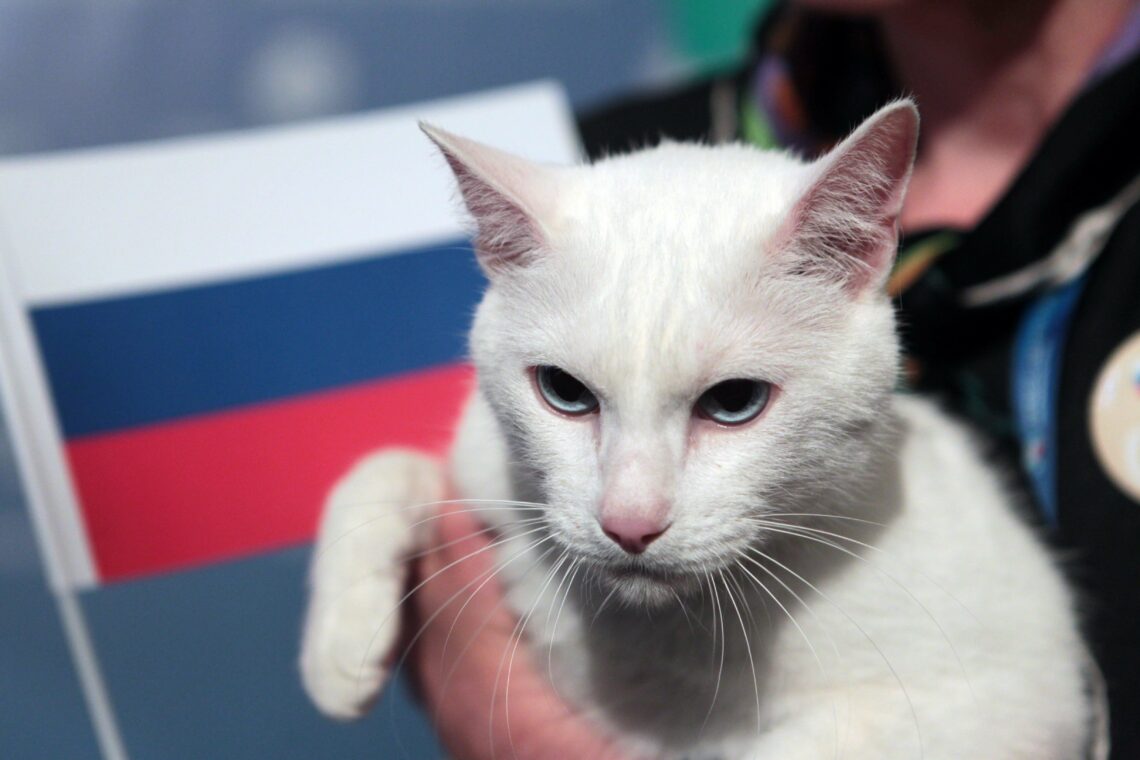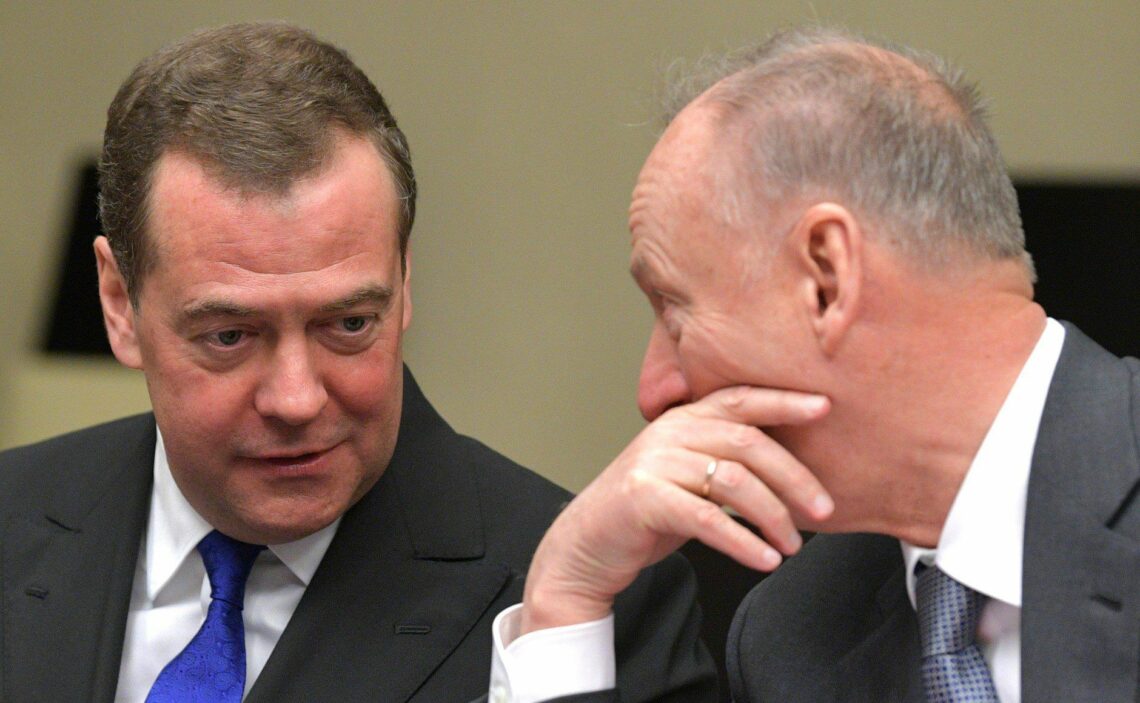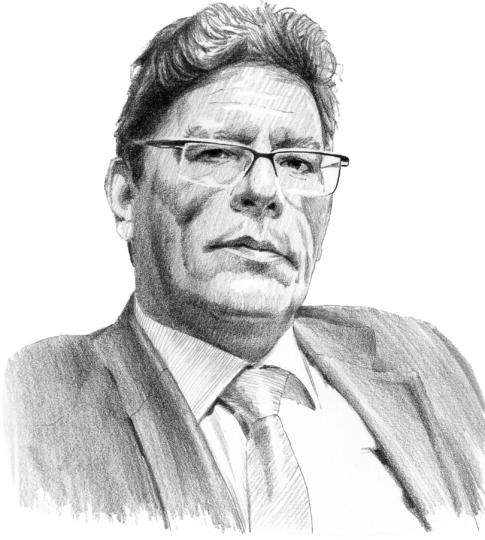Schrodinger’s Putin and bulldogs with masks (Part 1)
The Putin administration rushed a wide range of amendments to the constitution during the Covid-19 pandemic. Most analysts have concluded that the sole purpose of the changes was to allow the Russian president to hold on to power – which may or may not be true.

In a nutshell
- Many think President Putin wants to stay beyond 2024
- In fact, there are signs he is preparing his exit
- The pandemic has likely interfered with his plans
This report is the first in a two-part series on Russia’s constitutional amendments from GIS Expert Dr. Svyatoslav Kaspe. The second part, due to be published tomorrow, will focus on possible outcomes of the July vote.
The pandemic has caught Russian politics at an interesting time – at the very moment when a regime with fail-safe methods of suppressing change was being upended.
Russia’s political shakeup in early 2020 was mostly overlooked amid the global coronavirus commotion. Domestic observers misinterpreted the events; foreign commentators barely noticed them. But Russian politics have become more volatile, and it is necessary to look back on these developments to gauge where the current regime could head.
Athletes and actors
On January 15, 2020, in his annual address to the parliament, President Vladimir Putin announced that it was necessary to radically rework the constitution, which had been in force since 1993. On the same day, the government led by loyal Putin sidekick Dmitry Medvedev resigned. The post of prime minister went to the head of the Federal Tax Service, Mikhail Mishustin, a highly qualified technocrat but hardly a political heavyweight.
Mr. Mishustin announced that his team would focus on improving the quality of state administration. Nothing new here: such promises have been made by every Russian administration, and the results have been consistently negligible. He also promised large-scale deregulations of economic life – in contrast with the trends of the past 15 years.
The constitutional amendments, which had initially been only vaguely described by President Putin, were prepared and adopted at breakneck speed. Even given the extreme flexibility of Russian legislation, the process was highly irregular. In the work group set up to draft the changes, there were only a few lawyers, but several athletes, actors and other celebrities. Some participants said it was the first time they had read the constitution. Some others admitted having done nothing during the consultation.
Under Russian law, changes to the constitution can only be devised through methods like the convening of a constitutional assembly or a referendum. Instead, the amendments were approved as a regular federal law by both chambers of the parliament (first-reading approval on January 23), then by regional legislative assemblies. On March 14, Mr. Putin signed off on the changes. They were immediately forwarded to the Constitutional Court, which approved them on March 16.
The Russian constitution is technically already amended.
Only one step remained: some kind of nationwide vote, not required by any Russian law but mentioned in the draft of the constitutional amendments. President Putin emphasized that a vote was necessary, stressing that the amendments would only be legitimate if they were approved by the nation.
From a legal standpoint, any law adopted by the parliament and signed by the president becomes effective immediately, which means the Russian constitution is technically already amended. But in this case, politics trumps the law.
On March 17, Mr. Putin issued a decree stating the “nationwide vote” would be held on April 22. (That the date was also the 150th anniversary of Vladimir Lenin’s birth was probably unintentional.) And then Covid-19 came down on the country. After a few attempts to depict Russia as impervious to the scourge plaguing the rest of the world, it became clear that all public activity had to be halted. On March 26, the president had no choice but to announce that the grand finale of his show would be postponed indefinitely.
Convoluted consultations
The amendments themselves can be divided into two categories. The first is a collection of obvious populist platitudes:
- “The State guarantees minimum labor remuneration equal to or exceeding the subsistence rate of working people.” (Right now this rate is fixed at about 150 euros per month; surviving on this amount is impossible.)
- “Retirement pensions are indexed at least once a year.” (No figures are mentioned.)
- “Children are the most important priority of Russian state policy.”
- “The Russian Federation ensures the protection of its sovereignty and inviolability of its borders.”
- “The Russian Federation honors the memory of the defenders of the Motherland, and ensures the protection of historical truth. Belittling the significance of the national glory expressed in defense of the Motherland is not permitted.”
And so forth. Sharp-tongued commentators have suggested adding Pythagoras’ theorem and Newton’s first law of motion to the list – just in case.
The second set of amendments reforms the system of public government. That is where the shoe pinches, and it is in a rather unexpected way. Roughly speaking, the amendments make the Russian-style separation of powers radically more complex – but not in the sense that power will shift between the branches of government.
President Putin’s amendments do not significantly boost judiciary, legislative, executive or even presidential authority. They do create, however, a continuous and extremely convoluted process of consultations between political institutions and actors, making any decision-making impossible without coordinating with several partners, to say nothing of carrying out a cohesive long-term agenda.
Mexican standoff
If the changes are implemented, Russian politics could come to resemble a well-known movie trope known as the Mexican standoff. Three or more opponents hold each other at gunpoint, knowing shots will come from every direction as soon as someone shoots. As long as no one moves, parties can talk and look for a compromise. This is how power is divided in democratic systems and it is essentially how they differ from autocratic ones.
It is also noteworthy that the whole amendment process was kicked off with a Mexican standoff of sorts. On January 16, Dmitry Medvedev stepped down as prime minister to take on the newly created role of deputy president of the Security Council. The consultative but consequential body unites the highest authorities of all branches of Russian government, especially the so-called siloviki: the minister of defense, the foreign and interior ministers, the general prosecutor, and the heads of all security and intelligence agencies.
It is common knowledge that Mr. Medvedev and the siloviki are not fond of each other.
Since 2008, the secretary of the Security Council has been one of the few people enjoying President Putin’s absolute trust: General Nikolai Patrushev, who had replaced the future prime minister and president back in 1999 as head of the Federal Security Service. It is through him that the Security Council became a hub for high-level political decisions, the institutional bulwark and the main think tank of Russian hawks. The leading figure of the Security Council, however, was the president, and so far no one had deputized for him. It is common knowledge that Mr. Medvedev and the siloviki are not fond of each other – their views and backgrounds are utterly irreconcilable. Giving the former authority over the latter, including General Patrushev, mocks both parties and paralyzes them to boot. And this was apparently the desired effect.
Analysts are divided. The first, more numerous, group is convinced that President Putin’s only goal is to rule in perpetuum. This hypothesis cannot be easily discarded; after all, it was confirmed many times over the past 20 years. However, a minority of Russian political analysts (myself included) believe that sticking to this theory could be leading us astray. There are too many details that do not fit – President Putin could very well be preparing for a rapid departure from power.

Exit Putin?
First, the timing is difficult to explain. The current presidential term only runs out in 2024. There is absolutely no reason to be radically rearranging the constitution right now, especially since Mr. Putin has often sworn he would never resort to this.
Second, the unprecedented rush in preparing and adopting the amendments is noteworthy. In January 2020, no one in Russia (or in the world, for that matter) could have foreseen the impact of the pandemic. There must have been another reason why it was necessary to go fast.
Third, Mr. Medvedev’s sacking is meaningful. His government did not make any major blunders. If the president is unable to perform his duties, he is temporarily replaced by the prime minister, which boosts his chances compared to other contenders. Mr. Putin himself came to the presidency this way in 1999-2000. But his 2012 comeback shows that he does not trust his sidekick with the presidency.
A Medvedev comeback would have been possible, given his position and political experience. Now this chance is removed; Prime Minister Mishustin does not have such resources and is not seen as a credible contender for the presidency. The succession issue remains open because the odds of possible rivals have been evened out.
Fourth, it is bizarre that Russia’s foremost sociological center, the Public Opinion Foundation (FOM), stopped publishing presidential ratings a few days after President Putin’s announcement. The sociologists gave a curious explanation: “The issue of politicians’ electoral ratings will not be addressed before at least a hypothetical set of candidates in future presidential elections takes shape.” Before January 2020, this cast was obvious: Mr. Putin and a few extras. Apparently this is no longer evident. Perhaps FOM knows something.
Finally, it is hard to justify the nature of the amendments otherwise. Initially, many thought President Putin was creating a new role for himself in the political system, a role that would help him tower over all formal institutions and transform him into a lifelong king or sultan (like Nursultan Nazarbayev in Kazakhstan, who stepped down from the presidency in March 2019 but remains the indisputable “Leader of the Nation,” or elbasy). The problem with this theory is that post-amendments, there will be no position worthy of Mr. Putin in the new system.
The prime minister, the heads of both houses, the president of the Constitutional Court, even the president of the State Council (a body composed mainly of provincial governors, whose authority Mr. Putin had promised to expand but ultimately did not) will all be corseted by a tight network of checks and balances. No one would have the advantage in this Mexican standoff. Perhaps the president thinks he does not need an institutional upper hand, and that his person will suffice to rule over Russian politics. But it is extremely unlikely that he would be so naive.
Covid curveball
The situation took on a new dimension on March 10, during the second reading at the State Duma, when one last amendment was added. Presidential terms would still be limited to two, but the terms served before the amendments take effect would be exempt from this rule – thus making President Putin eligible for another 12 years in power.
Many took this as confirmation that the whole show had been set up to allow Mr. Putin to hold on to the presidency. However, this still does not explain the abovementioned circumstances. Circumventing the limit on presidential terms could have been achieved much more simply, and without any rush.
Mr. Putin resorted to a hasty maneuver to show the Kremlin bulldogs that coming out of hiding would be premature.
Moreover, this surprise twist is actually easy to explain. It is likely that Mr. Putin simply resorted to a hasty, improvised maneuver meant to make it obvious to the Kremlin bulldogs that writing off the master and coming out of hiding would be premature. In fact, Putin himself confirmed this on June 21: “Unless this is done… I know from my own experience: instead of normal, regular work many persons at all levels of power will start looking around in search of the possible successor. Need to work, not look for successors.” Any sensible politician would have done the same. President Putin has become Schrodinger’s cat – he is leaving and not leaving, he is there and in a sense, he is not. He also never said he would use the latest amendment.
His scheme worked and the bulldogs backed off. But then the coronavirus cut loose. The end of the show (or rather the end of the first act) had to be postponed. Not only were the bulldogs forced to go back into hiding, but they also had to don face masks and observe social distancing. Now the spectators are starting to assemble again. The “popular vote” will take place on July 1. Social restrictions are slowly being lifted.
A lot has changed in the course of that unforeseen intermission. The plot has become even more suspenseful.








